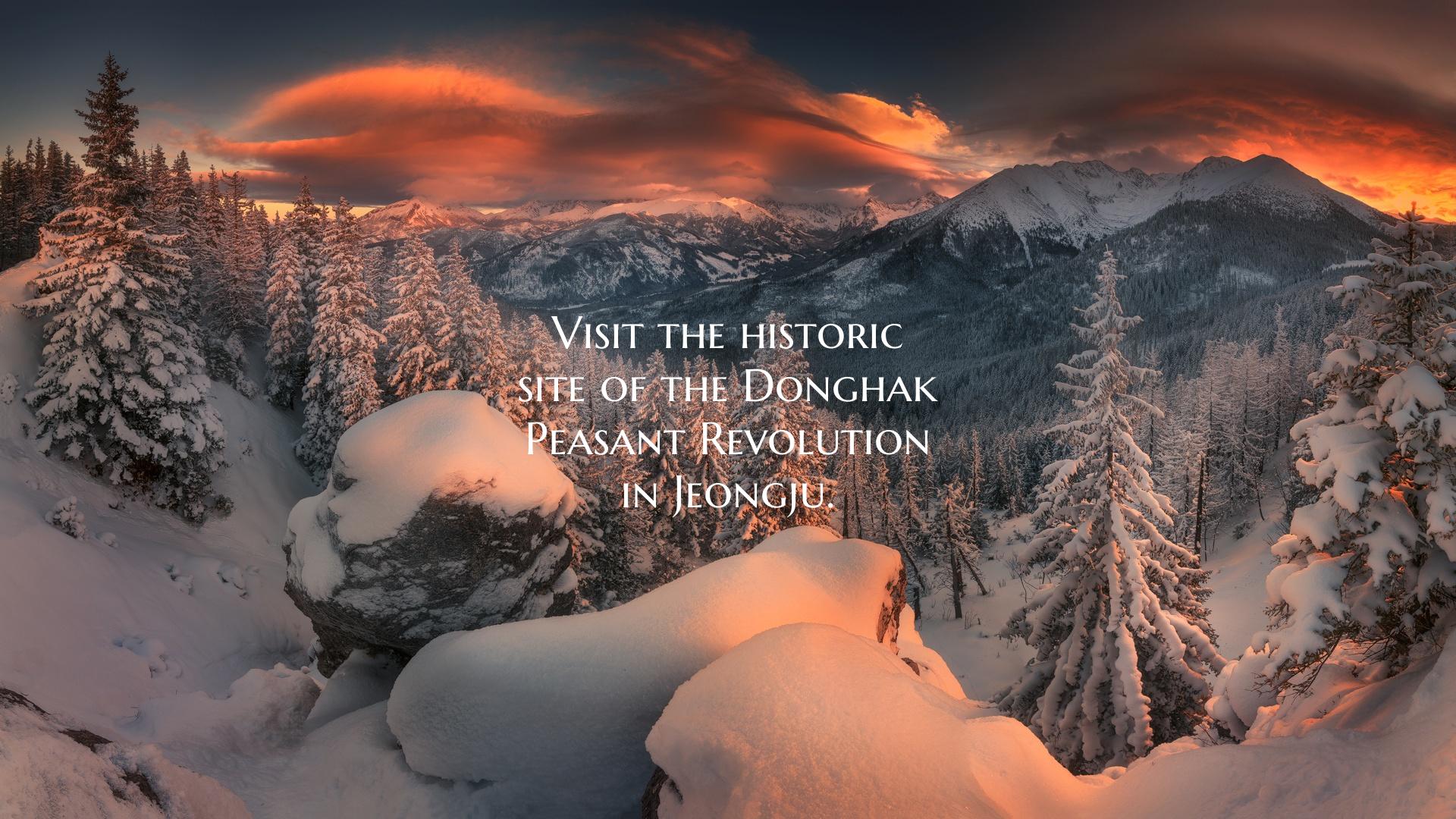
When you visit Jeongju, a city steeped in history and culture, one of the must-see sites is the historic location of the Donghak Peasant Revolution. This significant event, which took place in the late 19th century, played a crucial role in shaping Korea's modern history and highlighting the plight of the oppressed peasants.
The Donghak Peasant Revolution, also known as the Donghak Rebellion, erupted in 1894 in Jeongju and quickly spread to other regions. The peasants, led by the Donghak movement, rose up against the oppressive social and economic conditions they were facing. The movement's core principles of equality, justice, and reform resonated deeply with the disenfranchised peasants, who sought to challenge the ruling class and demand change.
Visiting the historic site of the Donghak Peasant Revolution in Jeongju allows visitors to immerse themselves in the past and gain a deeper understanding of the struggles and aspirations of the Korean peasants of that era. The site is marked by significant landmarks, including the symbolic locations where key events unfolded during the uprising.
Walking through the grounds where history was made, visitors can envision the fervor and determination of the peasants as they fought for their rights and dignity. The site offers a poignant reminder of the sacrifices made and the resilience displayed by those who dared to challenge the status quo and strive for a better future.
In addition to the historical significance, the Donghak Peasant Revolution site in Jeongju also serves as a place of reflection and education. Visitors can engage with exhibits, artifacts, and guided tours that provide insights into the socio-political context of the time, the leaders of the rebellion, and the impact it had on Korean society.
For history enthusiasts, cultural explorers, and anyone interested in gaining a deeper appreciation of Korea's heritage, a visit to the historic site of the Donghak Peasant Revolution in Jeongju promises a meaningful and enlightening experience. It is a tribute to the bravery and spirit of the peasants who dared to challenge the existing power structures and strive for a more just and equitable society.